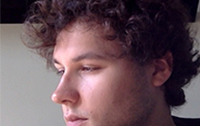
Category Archives: Research associates

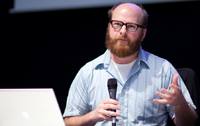
Erik Conrad
Erik Conrad is an artist and PhD student at the Topological Media Lab (Concordia University) researching the relationship between the phenomenal understanding of the body and the experience and understanding of space. His background is interdisciplinary, including a MS Information and Computer Science from University of California Irvine’s Arts, Computation and Engineering program, MS Information Design and Technology from Georgia Tech, and BA Visual and Performing Arts from University of Maryland Baltimore County. Conrad has presented internationally at SIGGRAPH and ISWC, and his most recent work, TactileSpace, has been exhibited at the Beall Center for Art and Technology in California.

Tirtza Even
A practicing video artist and documentary maker for the past fifteen years, Even has produced both linear and interactive video work representing the less overt manifestations of complex and sometimes extreme social/political dynamics in specific locations (e.g. Palestine, Turkey, Spain, the U.S. and Germany, among others). Her work has appeared at the Museum of Modern Art, NY, at the Whitney Biennial, the Johannesburg Biennial, as well as in many other festivals, galleries and museums in the United States, Israel and Europe, and has been purchased for the permanent collection of the Museum of Modern Art (NY), the Jewish Museum (NY), the Israel Museum (Jerusalem), among others. She has been an invited guest and featured speaker at numerous conferences and university programs, including the Whitney Museum Seminar series, the Digital Flaherty Seminar, Art Pace annual panel, ACM Multimedia, The Performance Studies International conference (PSI), The Society for Literature, Science, and the Arts conference (SLSA) and others.
Currently an Assistant Professor at the School of the Art Institute of Chicago, Even has been teaching Video and Multimedia Production and Post-Production, Experimental and Documentary Film Theory, Video Art and Media Theory and Production at the School of Art & Design, the University of Michigan, at New York University, at Columbia University, NY and at a number of other colleges and universities in the U.S. and abroad, and has published articles about video art history and theory in Israel and the United States.
A Fulbright scholar, She completed a Masters Degree in Cinema Studies (with a focus on Documentary and Ethnographic Film Production and Theory) and a second Masters in the Interactive Telecommunication Program, both at New York University.

Satinder P. Gill
University of California Irvine
Satinder Gill received her PhD in Experimental Psychology at the University of Cambridge, where she developed a model of knowledge transfer and acquisition based on an analysis of the tacit, experiential, and explicit dimensions of knowing.
She conducted post-doctoral research at NTT’s information science and communication science research laboratories, and at ATR (Advanced Telecommunications Research Institute, Kyoto), where she formed the theory of Body Moves and the Engagement Space.
At Stanford University’s CSLI (Centre for the Study of Language and Information), she expanded her conception of the relation between the body, cognition, speech, and the interface, in communication. During this time, she formed the CSLI Gestures and Dialogue Seminar. She is the Co-Editor of a book being produced from the Seminar that explores how an understanding of the complexity of human cognition can move beyond dualist theories of human knowing.
During her time at Stanford, she co-founded and served as Research Coordinator of the Real-Time Venture Design Lab. Here she developed an interactive framework and research agenda for the use of interactive media in the formation of communities of practice and knowledge design, building on her collaborations with the Stanford iSpaces project.
Inspired by the responsive media environment of the TGarden, Satinder Gill is extending her Body Moves approach to the pragmatics of meaning where salient body rhythms span more than one body
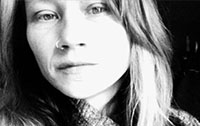
Patricia Anne Duquette
Complimenting a twenty-year history of producing experimental performance and intermedia artworks, my study interests are bracketed with a concern for the social and biopolitical significance of contemporary art practices. Current research threads investigate the relevance of phenomenological inter-subjectivity and inter-relational psychology to prevailing theatrical theory. Creative explorations extend to the Memory/Place, Movement Research, and Telepresencing working groups.
M.A. Candidate, S.I.P, Concordia University.

Niklas Damiris
Laboratory for Monetary
Research, Swiss Centre for Banking Studies, Lugano.
Stanford University
Niklas Damiris received his doctorate in theoretical biology and the foundations of physics at Wesleyan and Binghamton Universities. He didpost-doctoral work at Stanford in neurophysiology, and was a member ofXerox PARC’s Embedded Computation Area. While working at Apple Research Laboratories, Dr. Damiris is co-founded Pliant Research, a project dedicated to the design of socio-technical systems that flexibly and robustly accommodate changing social needs. Dr. Damiris has been a research fellow at the Institute for Politics, Philosophy and Management, Copenhagen Business.
Dr. Damiris is is currently collaborating on a monograph with Helga Wild, entitled The Wealth of Organizations, where social and ethical reasons are offered in addition to economic arguments for the existence and structure of corporations. He is also collaborating with Sha Xin Wei on a second monograph, entitled Liquid Space, a field-theoretic approach to computational materials and the technology of writing.
Currently Dr. Damiris is consulting researcher at IBM Almaden Research
Center working on services and alternative economies.
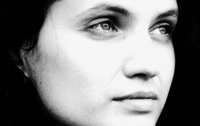
Maja Kuzmanovic (maja)
Maja is a generalist, with a background in Design Forecasting and Interactive Media. Maja is the founder, principal invigorator and chef de cuisine of FoAM. Prior to FoAM, she experimented with MR & VR in research institutes across Europe (GMD, CWI, Starlab), lectured (HKU), as well as collaborated with technological arts collectives such as Post World Industries and Pips:Lab. Her particular approach to people & technology has been recognised by the MIT’s Technology review & the World Economic Forum, awarding her the titles of Top 100 Young Innovator (1999) & Young Global Leader (2006). Her current interests span alternate reality storytelling, patabotany, resilience, speculative culture and techno-social aspects of food & food systems.

Laura Farabo
sponge, San Francisco, California
Laura Farabo has created experimental performance and theater for 30 years in Mexico, Japan, Switzerland, Germany and the United States. As co-artistic director of beggars and of snake performance companies, Laura pioneered constructions of site-specific performance and video performance. Laura founded the non-profit arts organization nightfire in 1981, which produced in the subsequent 15 years works such as “Obedience School” (LA to NYC) and “Bodily Concessions” (San Diego, San Francisco, Seattle).
Laura has won awards and grants from numerous foundations including the Rockefeller Foundation, Fulbright, National Endowment for the Arts, The Hewlett Foundation, San Francisco Foundation, and the California Arts Council.
Currently, as a co-founder of sponge, Laura is conducting experiments in the form of responsive spaces — TGarden — and public urban installations — Sauna.
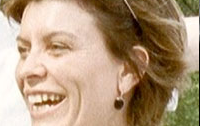
Helga Wild
Helga Wild was educated in the continental tradition of experimental psychology with heavy emphasis on quantitative methods, experimental design, statistics, and test theory. After her Ph.D. in Psychology/ Physiology at K. Franzens-University, Austria, Helga has been invited as research fellow to the Institute for Systems Theory, J. Kepler-University, Austria; Stanford University and Xerox PARC. At the Institute for Research on Learning (IRL) she acquired in addition qualitative, i.e. ethnographic, techniques. She has since combined qualitative and quantitative techniques in the service of attaining a better grasp of the multiple layers of social and organizational reality.
Over the course of eight years Helga Wild managed a large number of increasingly complex projects, carried out ethnographic research and social design, and developed tools to help embed new practices in the existing social fabric. She extended the IRL approach by using her skills in conceptual design to engage the client in an interactive design process whereby the results from the ethnographic research were re-embedded in the organization as new tools and/ or new practices, an approach which the institute adopted in 1998 under the term “Interactive Research and Design.”
In 2000, Helga Wild joined WestEd’s staff as a Research Associate within the Action Learning Group. Her work takes the form of: Ethnographic research: identifying unique work practices and knowledge through observation, interviews, video analysis, protocol analysis
Facilitation and Participatory Design: helping stakeholders and experts co-construct solutions to address existing problems and leverage inherent potential
Qualitative and/ or Quantitative Evaluation
Design and Development of visualizations, tools, and processes to help make visible and embed new practices
Assisting an organization or community in developing the internal competency to support their objectives and the way they work.
Affiliation: Principal, Water-cooler Logic
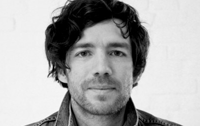
David Gauthier
David is a scientist. His work and teachings explore innovative use of technologies as a mean to probe and create future scenarios involving humans and machines. He has artistic and scientific research expertise in domains ranging from actuated textiles to viral communications. Gauthier worked in various institutions, notably the MIT Media Laboratory, the Banff New Media Institute, the Hexagram Institute for Research/Creation in Media Arts and Technologies, the Danmarks Designskole.
He holds a Master of Science degree in Media Arts and Science from the Massachusetts Institute of Technology and earned a Bachelor of Science degree in Mathematics from the Université du Québec à Montréal. His scientific research and collaborative artistic experiments have been published and exhibited internationally in conferences such as ICMC, SIGGRAPH, ISEA, ACE, CHI, and venues such as the Netherlands Media Art Institute (Amsterdam), Žižkov Television Tower (Prague), Museum of Science (Boston), Beall Center for Art and Technology (Irvine), Science Gallery (Dublin), MFRU (Maribor), Kulturværftet (Helsingør) and FOFA Gallery (Montréal).
TML projects: WYSIWIG and Dance Move (with Michael Fortin).
